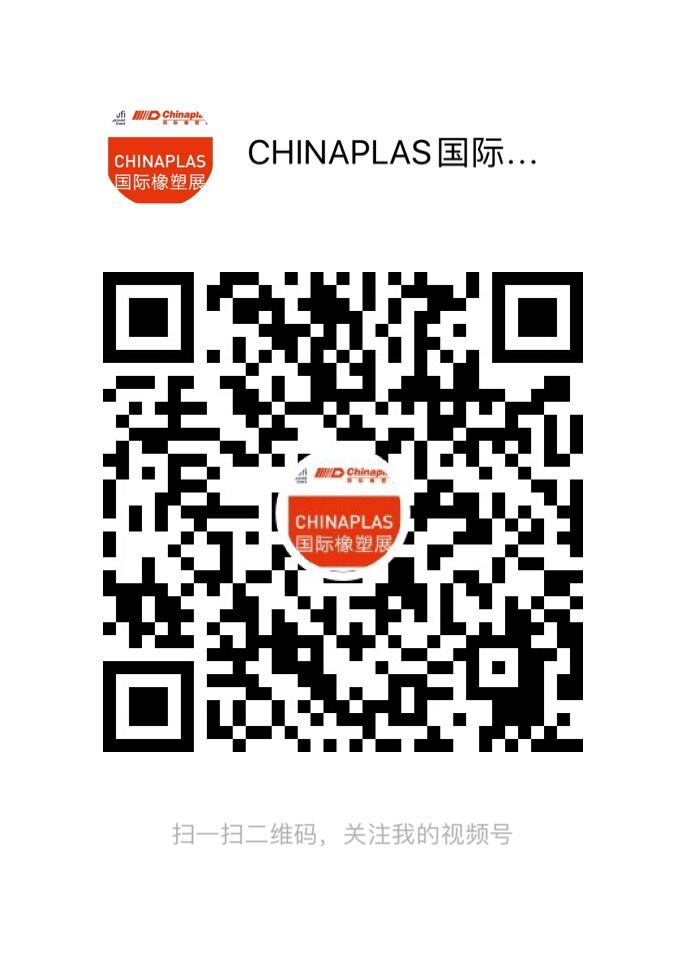
Innovative design and sustainability are two of the hottest topics in the plastic packaging industry.
(Source: 588ku.com)
 Plastic Packaging Hails Design Innovation and Sustainability
Plastic Packaging Hails Design Innovation and Sustainability
Design innovation and sustainability are two of the hottest topics in the global plastic packaging industry. With the emergence of new consumption behavior, sustainability goals of brands, as well as attention to environmental, social, and corporate governance (ESG), innovative design that meets user expectation and low-carbon requirements is a phenomenal trend across the up and down streams of the industry.
Source: Adsale Plastics Network(www.AdsaleCPRJ.com)
In the wine and healthcare product markets, where glass has been the material of choice for packaging, PET/PP bottles have stood out in recent years with the advantages of lightweight, breakage-proof, high recyclability, and low energy consumption during production.
Indorama Ventures, a Thai Chemical Company which joined hands with SIPA to launch the single-layer PET sparkling wine bottle, was claimed to be an industry first. Its appearance and touch feeling are almost the same as a glass bottle with a weight reduction of 80%. Another example is Tennessee Whiskey, which has applied 100% rPET to promote sustainability.
Beauty and healthcare products such as liquid collagen have gained popularity rapidly and have become one of the best sellers on the e-commerce platform. Compared with glass bottles, PET/PP bottles have more advantages in the applications of e-commerce logistics. In China, the PET bottle for beauty liquid launched by Zhejiang Huanuo Pharmaceutical Packaging once drove a new trend in the market.
In July 2023, China's National Development and Reform Commission (NDRC) announced its strategies to accelerate the establishment of ready meals production bases. The ready meals market has directly driven the demand for heat-resistant and quick-frozen functional packaging materials. In view of the increasing demand in this market, materials and equipment suppliers have launched corresponding advanced solutions.
SEE launched packaging technology that can be heated directly in microwave oven without changing the container. Xiamen Changsu launched the TSA® film with excellent linear tearing property, which still has excellent tearing property after being frozen at -18°C for 24 hours. Reifenhäuser also introduced the EVO Aqua Cool multi-layer (7-11 layers) blown film production line, which is suitable for thermoforming packaging films and vacuum skin packaging with good optical and anti-fog properties.
Design for caps and closures is focusing more on functionality and user experience. For example, Heinz introduced the new double lid ketchup bottle with two caps, both up and down, allowing consumers to access the last drop of the ketchup.
Besides, Yili launched China's first bottled freshly brewed tea and the bottle design was based on the patented Freshness Locking Cap technology which seals tea powder inside the cap for separation from water.
In addition to innovation in user experience and new scenarios, innovation in sustainability is becoming increasingly important in packaging design. The application of a high proportion of recycled plastics in packaging is a key focus for brands. For example, Aveda which is Estee Lauder's high-end hair care brand, has used 100% post-consumer recycled (PCR) plastics in 95% of its PET bottles.
As an important area for high-value applications of recycled plastics, food contact packaging sees increased collaboration between global brands, material suppliers and equipment manufacturers. Coca-Cola India uses Starlinger’s PET bottle-to-bottle production line to produce food-grade rPET bottles. The original soy milk and distilled water sold by Vitasoy in Hong Kong are made of 100% rPET. INEOS Styrolution and TOMRA use post-consumer polystyrene (rPS) in food packaging. SABIC also launched polyethylene with 25% renewable content, which can be used in instant rice trays.
Although China does not allow the use of recycled plastics in food contact packaging at present, companies are trying to use recycled materials in outer packaging that is not in direct contact with food. For example, Mars Wrigley launched the first 100% rPET product packaging in the Chinese market, changing the materials for bowl lid of its local chocolate brand to 100% rPET.
Meanwhile, Chinese companies have made great strides in recent years in certifying food contact recycled materials. Companies, including Veolia Huafei, Zhejiang REEF, Kingfa, Guangxi Wuzhou Guolong, Jiangsu Ceville, and Jiangsu Peipu, have obtained certifications from the U.S. Food and Drug Administration (FDA) and/or the European Food Safety Authority (EFSA). They have actively promoted the application of recycled plastics in food contact applications globally.
Notably, bio-based/biodegradable plastics are also chosen to reduce plastic pollution and fossil-based resource consumption.
Flo, an Italian food packaging manufacturer, uses Ingeo PLA produced by Natureworks to make thermoformed coffee capsules. LVMH, a world leader in luxury, cooperates with DOW to use bio-based and circular SURLYN™ across LVMH's perfume and cosmetic products. Besides, Astellas Pharma applied bio-based film in pharmaceutical blister packaging, which was claimed to be the first of its kind in the world.
Besides adopting recycled and bio-based materials, plastic packaging developers have to consider how to leverage the technologies of the industry chain to implement sustainable and innovative design concepts, such as thin-wall and lightweight material, mono-material, ink reduction, de-labeling, transparency, refill, tethered cap, and so on.
Lightweight and thin-walled packaging has become an important consideration for bottled water, beverage and yogurt. According to global new product database of Innova, a research firm, it shows that from July 2018 to June 2023, new products that claim to "reduce packaging materials" on their packaging reached a compound annual growth rate (CAGR) of 55%.
PepsiCo has joined forces with Sidel to retrofit the PET bottle production line for its Aquafina bottled water, which can reduce 10% of raw material for 330 ml bottle. In addition, Amcor uses two-step Quantum lightweighting technology to eliminate more than 50% of the materials in the finish of PET bottle.
Greiner Packaging, an European leading plastic packaging manufacturer, has introduced rPET thin-walled cup, which is a product resulting from collaboration with Austrian injection molding machine manufacturer ENGEL and mold maker Brink.
Replacing multi-material packaging with mono-material packaging that is more conducive to recycling has become an industry trend.
According to the report “The Future of Mono-Material Plastic Packaging Film to 2025” published by research firm Smithers, mono-material plastic packaging film consumption is forecast to grow at CAGR of 3.9% to 26.03 million tonnes (US$70.9 billion) by 2025.
Brand and the industry chain are actively promoting the use of mono-material for composite films. For example, Ella’s Kitchen, a British baby food company, launched mono-material standup pouch packaging; Chinese dairy giant Mengniu cooperated with DOW to introduce all-PE packaging yogurt products; ExxonMobil, Henkel, SIEGWERK and a blown film line manufacturer W&H also jointly developed a mono-material PE flexible bag.
In addition, the composite tube and pump head sectors are also actively promoting mono-material solutions. For example, L'OCCITANE teamed up with Albéa to innovate in the design of its iconic tube and octagonal cap, introducing all-HDPE composite tube to replace the aluminum-plastic tube; Head & Shoulders' scalp calming treatment range is packaged in all-PP flexible tube.
There are also many examples of all-plastic pump replacing traditional pump that contains metal components. Aptar Pharma introduced a metal-free, multi-dose nasal spray pump made of polyolefin, the company's first highly recyclable nasal spray pump; L'Oréal debuts its first all-plastic pump for Extraordinary Oil Shampoo; and P&G has patented an all-plastic pump that can be recycled without disassembling.
Besides, sustainable packaging technologies such as ink reduction, de-labeling, transparency and refill have also come into the spotlight of the plastic packaging industry.
Nestlé has reduced the ink used in the packaging of its salt-reduced fresh soy sauce products, saving over 35% of ink usage; Spritzer, a Malaysian bottled water supplier, has introduced 100% recyclable plastic bottles without labels. Transparent PET bottle is also a rising trend. In 2022, Sprite, one of brands of Coca-Cola, switched to using transparent bottles; LION launched, in Thailand, its first body wash refill pack, which is a recyclable standup pouch made of DOW's PE resin.
In order to increase the recycling rate of whole bottle, EU Directive 2019/904 was enforced that plastic caps must remain attached to the bottle for single-use plastic beverage bottles with capacity of three liters from July 2024 onwards. Brands and cap manufacturers are hence accelerating to the research and development of tethered cap.
Coca-Cola Europacific Partners and Sidel plan to retrofit all Coca-Cola PET bottle production lines for increasing the production of PET bottles with tethered caps in Europe by July 2024. Besides, SACMI and SCG Chemicals cooperate to develop stress-cracking resistant tethered caps for carbonated drinks. The tethered caps produced by Husky’s technology can open and lock at 180 degrees, as introduced, the injection molding process does not require ring cutting outside the mold, which is more economical and efficient.
The global market for sustainable plastic packaging was valued at approximately US$85.8 billion in 2022 and is expected to continue growing to reach US$143.7 billion by 2030, according to Statista, a global market research firm.
Meanwhile, sustainable development and circular economy remain at the top of agenda for the plastic packaging industry. Major food and beverage and daily chemical brands, such as Coca-Cola, PepsiCo, Nestlé, Mondelēz, Unilever, P&G, have announced the target of using 100% recyclable, reusable or compostable packaging by 2025/2030/2040.
In light of more packaging design and innovation for new consumer scenarios and higher sustainability requirements, plastic as one of the four important basic materials among paper, glass and metal for modern consumer and industrial packaging, plastic packaging ushers in new opportunities for development!














